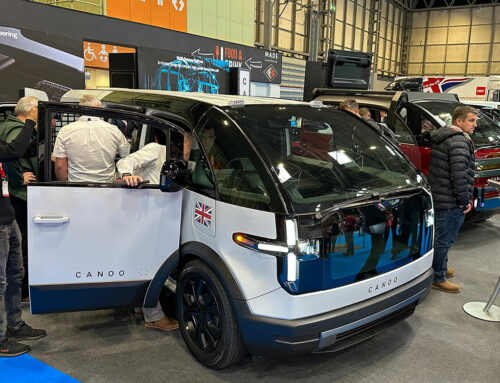THE Government has announced a two-year extension of plug-in van and truck Grants to help support businesses to make the switch to electric.
Last year, industry figures showed the UK had the highest number of plug-in electric vans sold in Europe, and there were around four times as many grant applications compared to 2020. Existing grants have supported the purchase of more than 26,000 electric vans and HGVs across the UK since the programme launched in 2012.
With nearly 5% of the UK’s CO2 emissions currently coming from vans, the two-year extension to these grants and the switch to greener vehicles is essential to support the Government’s climate change and air quality commitments.
Transport Minister Trudy Harrison said: “When it comes to clean business, this Government means business. We are backing a generation of green growth for our thriving fleet sector.
“As demand for electric vehicles continues to grow at speed, this extension to our grant scheme will allow tens of thousands more vans to be purchased, transporting goods in a way which is kinder to our environment.
“This will support our vital, ongoing work to clean up our air in towns and cities right across the country and build back greener.”
Government grants for electric vans and trucks has helped kickstart the market, which now offers more than 30 models of electric vans and trucks which qualify for such schemes. Electric vehicles are becoming more popular and affordable, and the number of available models will continue to rise, allowing more people and businesses to benefit from the lower running costs of greener vehicles.
The Government has committed £2.5bn to vehicle grants and chargepoint infrastructure to support the transition to zero emission vehicles to date, and Plug-In Vehicle Grant Schemes have supported the purchase of over 450,000 ultra-low emission vehicles across the UK – including more than 300,000 zero emission vehicles.
As well as the extension to grant schemes, the Government has also announced it will continue to allow drivers holding standard car driving licences to drive electric goods vans at a higher weight limit, up to 4.25 tonnes (compared to a 3.5 tonne limit for diesel vans).
This takes into account the additional weight of electric vehicle batteries and makes it easier for businesses and drivers to make the switch.
From 1 April 2022, the threshold to claim the small truck grant of up to £16,000 will be increased from 3.5 tonnes to 4.25 tonnes. Vans up to 4.25 tonnes will be able to claim the large van grant of up to £5,000.
With the increasing number of large vans on the market, the move will ensure Government targets support where it’s most needed, allowing for heavier and more costly trucks, up to 12 tonnes, to benefit from the higher grant funding.
This change will ensure funding is focussed on helping more polluting trucks to make the switch to a zero-emission future.
In response to the government’s announcement on the extension of the plug-in van grant and Category B licence derogation, and upcoming changes to the plug-in van (PiVG) and truck grant (PiTG) weight thresholds, Denise Beedell, Public Policy Manager at Logistics UK, said: “Given the current pressures on public finances, Logistics UK is pleased to see the government has heeded our calls to provide support to help the van sector meet net zero targets, and that the level of funding within this announcement demonstrates a clear recognition of the importance of this essential sector.
“The derogation is seen by van operators as a vital measure to support the decarbonisation of the van fleet; it will give commercial vehicle operators confidence in investing in zero emission technology. This announcement also should encourage more training providers to offer the compulsory five-hour training course required to be fully compliant before driving using the derogation.”







Leave A Comment